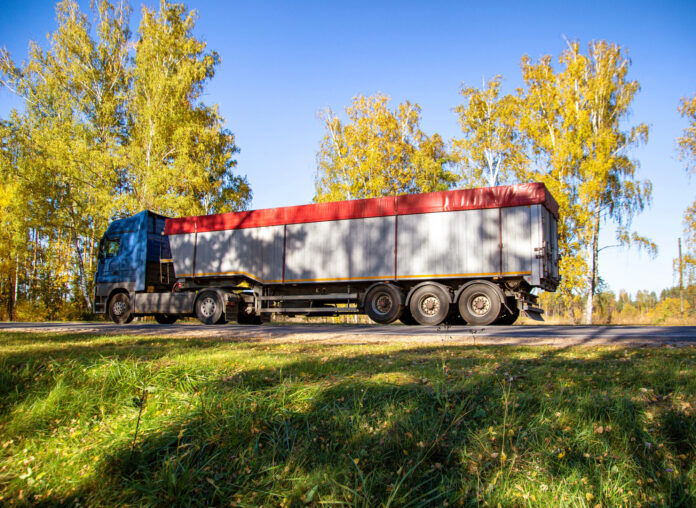
For internationally-trained truck drivers who want to immigrate or temporarily work in Canada, Alberta has the second-highest number of job vacancies and so provides tremendous opportunity.
In late May, the Job Bank federal job-hunting and career-planning website listed 802 job ads in Alberta for truckers, categorized under the National Occupational Classification (NOC) 2021 with the code 73300, and many employers were seeking to fill multiple positions.
Edmonton and Calgary-based employers accounted for the vast majority of those job offerings. There were then 446 job vacancies for truckers in Edmonton, the provincial capital, and 269 in Calgary.
Together, the province’s two major cities accounted for 715, or 89.1 per cent, of all open trucking jobs in Alberta in late May.
In Alberta, the median hourly wage for trucking jobs is $28 but that varies from a low of $18.12 per hour right up to $37.45 per hour, reveals Job Bank.
Read More Canada Immigration News
Alberta Sees Exponential Rise In Applications From Internationally-Trained Nurses
Alberta Conducts Five Express Entry Draws In April, Invites 405 Candidates
Alberta PNP Changes Aimed At Healthcare Workers, Refugees And Entrepreneurs
Based on a standard 37.5-hour work week, that would be $73,027 at the upper end of the annual wage scale for truckers in Alberta.
But truck drivers are also often paid bonuses by the kilometre, enabling them to earn significantly more.
With transportation companies desperately looking for truckers to replenish and grow their aging workforce, both the federal and provincial governments have been helping out with immigration policies to grant work permits and permanent residence to qualified foreign workers looking for these kinds of jobs in Canada.
Are you an employer looking to hire foreign workers in Canada? Immigration.ca can help through its sister company, skilledworker.com. We provide a comprehensive recruitment package to help you identify and hire the best individuals from abroad. Contact us now.
Alberta is one of the participants in the Economic Mobility Pathways Pilot (EMPP) which is expected to start helping employers hire skilled refugees and other displaced individuals, including for trucking jobs, starting this summer.
That will allow refugees who are truckers to immigrate to Alberta under the EMPP and get jobs in the transportation sector.
Watch Video
“Canada is a global leader in helping skilled refugees connect with employers struggling to find workers in critical areas, while giving newcomers the opportunity to restart their careers and their lives here in Canada,” said Immigration Minister Sean Fraser.
“Our government will continue to develop and scale innovative immigration measures to help employers address their critical labour shortages and provide refugees with the opportunity to live in safety while rebuilding their lives.”
Foreign nationals who are not refugees can also immigrate to Alberta as truck drivers through the federal, Express Entry Federal Skilled Worker (FSW) program.
In mid-November last year, truck driver was one of 16 occupations added to the FSW’s list of eligible occupations when the IRCC updated to the NOC 2021 classification system.
Internationally-Trained Truckers Now Qualify For Immigration To Canada Under The FSW
Qualifying applicants under the FSW can apply through Alberta Express Entry and get a provincial nomination which ups the foreign national’s Comprehensive Ranking System (CRS) points-based score and greatly helps them get an Invitation To Apply (ITA) for permanent residence.
Truck driver under NOC 73300 is also one of the 82 jobs to be targeted as part of new occupation-specific Express Entry draws. Immigration, Refugees and Citizenship Canada announced the new draws on May 31, saying they would start in summer 2023.
If you are a candidate looking for a Canada job, or an employer looking to recruit foreign talent from abroad, immigration.ca can help. Access our expertise through our in-house recruitment enterprise skilledworker.com, “the leader in foreign recruitment”.
Once nominated, the next step is to apply to the federal government through Immigration, Refugees and Citizenship Canada (IRCC). The IRCC makes the final decision on who becomes a permanent resident.
Temporary foreign workers already in the province in trucking jobs can also qualify through the Alberta Opportunity Stream.
In Canada, foreign nationals can often come under a temporary work permit, through the Temporary Foreign Worker Program (TFWP), or a study visa, gain work experience and then apply for permanent residence under a federal Express Entry program.
The TFWP has been a primary avenue for trucking companies to hire workers from overseas but this requires the employer get a positive Labour Market Impact Assessment (LMIA).
Under the TFWP, qualified applicants receive a Canadian visa and, depending on the province, can transition to Canadian permanent residence through an Express Entry immigration program, such as the Canadian Experience Class (CEC) program.
The CEC requires that applicants have 12 months of Canadian work experience within the past three years.

